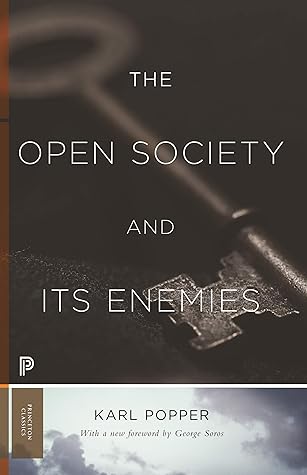the paradox of freedom, first discovered by Plato, and briefly discussed above41; a paradox that can be expressed by saying that unlimited freedom leads to its opposite, since without its protection and restriction by law, freedom must lead to a tyranny of the strong over the weak. This paradox, vaguely restated by Rousseau, was solved by Kant, who demanded that the freedom of each man should be restricted, but not beyond what is necessary to safeguard an equal degree of freedom for all.
Welcome back. Just a moment while we sign you in to your Goodreads account.


